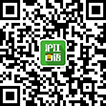2007年阅读理解精读100篇-模拟自测题Text2
Text2
Charles Reznikoff (1894-1976) worked relentlessly, never leaving New York but for a brief stay in Hollywood, of all places. He was admired by Pound and Kenneth Burke, and often published his own works; in the Depression era, he managed a treadle printing press in his basement. He wrote three sorts of poems: exceptionally short imagistic lyrics; longer pieces crafted and cobbled from other sources, often from the Judaic tradition; and book-length poems wrought from the testimony both of Holocaust trials and from the courtrooms of turn-of-the-century America. Two of these full-length volumes were indeed titled "Testimony," as was an earlier prose work; it was a word that kept him close company. When asked late in life to define his poetry, it was not the word he chose.
"Objectivist," he wrote, naming his longstanding group, and mimicking poetic style with a single prose sentence: "images clear but the meaning not stated but suggested by the objective details and the music of the verse; words pithy and plain; without the artifice of regular meters; themes, chiefly Jewish, American, urban." If the sentence sounds hard-won, this is perhaps because it was. Four decades earlier, he wrote in a letter to friends, "There is a learned article about my verse in Poetry this month, from which I learn that I am an objectivist." The learned fellow was Louis Zukofsky, brilliant eminence of the Objectivists, "with whom I disagree as to both form and content of verse, but to whom I am obliged for placing some of my things here and there." So read Reznikoff's conclusion in 1931, with its fillip of polite resentment.
Movements and schools are arbitrary and immaterial things by which poetic history is told. This must have rankled Reznikoff, who spent his writing life tracing the material and the necessary.
Born a child of immigrants in Brooklyn in 1894, he was in journalism school at 16, took a law degree at 21. Though he was little interested in legal practice, the ideas would be near the heart of his writing. Ideal poetic language, he wrote, "is restricted almost to the testimony of a witness in a court of law." If this suggests a congenital optimism about the law, it made for astonishingly care-filled poetry. Reznikoff is unsurpassed in conveying the sense that the world is worth getting right. Not the glorious or the damaged world, but the world that is everything that is the case. Reznikoff's faith in the facts of the case takes on an intensity no less social than spiritual, no greater when surveying the Old Testament than New York. This collection gathers all his poems (but for those already book-length) by the technique of compressing onto single pages as many as five or six at a time. This can lessen the force; each is a sort of American haiku, though no more impressionistic than a hand-operated printing press. One such, numbered 69 in the volume "Jerusalem the Golden," runs in its length: "Among the heaps of brick and plaster lies / a girder, still itself among the rubbish." This exemplary couplet is sometimes taken to represent Reznikoff's poetry itself, immutable and certain amid the transitory.
6. By saying "it was a word that kept him close company" (8th line, 1st para.), the author implies .
[A] Charles Reznikoff always wrote works about testimony.
[B] Charles Reznikoff was always involved in the testimony affairs.
[C] Charles Reznikoff liked to write testimony.
[D] Charles Reznikoff is a busy lawyer.
7. Reznikoff's attitude to the fact that he was grouped as objectivist is .
[A] approval
[B] indifference
[C] opposition
[D] suspicion
8. The word "rankled" (2nd line, 3rd para.) probably means .
[A] interested
[B] Angered
[C] Pleased
[D] Consoled
9. We can learn from the 4th paragraph that .
[A] Reznikoff liked to learn law.
[B] Reznikoff was more interested in spiritual world than in social world.
[C] It is astonishing that Reznikoff wrote care-filled poetry.
[D] Reznikoff was greatly influenced by his legal experience in his poetry writing.
10. By citing the poem in the last paragraph, the author intends to .
[A] show that the force is lessoned in this way
[B] show that the poem is not impressionistic
[C] show that the poem is immutable
[D] show that the poem is compressed
猜你喜欢
- 日本动漫游戏:学校的圣域
feng社第9作第1弹《彼女のセイイキ(她的圣域)》,而系列的第2弹《妹的圣域》已于2015年08月28日发售,系列第3弹《学校的圣域》在2016年11月发售。
- 秒变单身狗:哪些话不能对恋人说
恋爱初期总是美好而甜蜜的,然而两人长期处下来,就会发现对方的不足之处。生气起来口不择言,结果深深的伤害到两人的感情。这期给大家介绍一些对恋人可不能说的一些话。
- 「こんにちわ」是个啥?你知道吗?
常逛日站或是和日本朋友聊天的小伙伴们肯定经常会听到一句:こんにちわ,从发音上我们可以猜出来是こんにちは,但是这个こんにちわ是怎么来的呢?他又是什么呢?下面就让沪江日语教研君来告诉你吧!
- 日本礼仪:你真的会斟酒吗?
走进社会,我们不仅要在工作上努力努力再努力,还要一边学习一些社交礼仪。酒会作为一种常见的社交活动,学会其中的斟酒礼仪也是一门学问。今日,小编给大家整理了日本的斟酒礼仪供大家参考学习。
- 对外汉语研究生招生院校及联系方式
本文系中国招收对外汉语研究生的院校及其联系方式,有意向的同学可以参考参考!
- 塗料的英文怎么说
学习单词的道路上任重道远,多和外语学习爱好者一起交流,会收获更多经验及学习技巧,在此推荐塗料的英文单词写法、塗料用英语怎么说、英文造句大全等外语学习资源,让大家学习外语更轻松,单词记忆更方便
- 2011银行从业资格考试《公共基础》辅导笔记(15)
二、授信业务法律规定 规定类别 细分 内容 授信原则 合法性原则、诚实信用原则、统一授信原则、统一授权原则。 授信审核 审贷分离,分级审批 贷款调查评估人员:负责贷款调查评估,承担调查失误和评估失准责任 贷款审查人员:负责贷款风险的审查,承担…...


